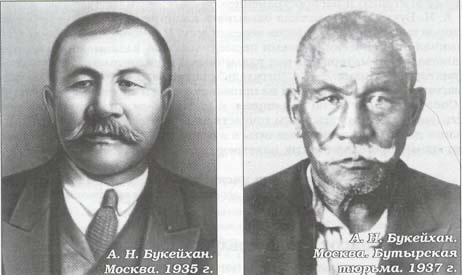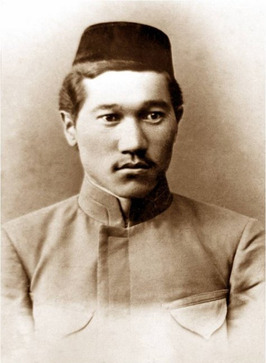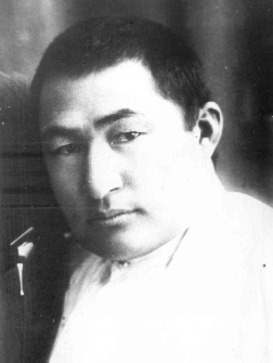Second In Command, Best Swordsman, Means Of Transportation, He Has It All!

second in command, best swordsman, means of transportation, he has it all!
More Posts from Alenseress and Others
Elias laughs and the sound of it isn't unkind. Jon isn't sure why he expects it to be. It's somewhat pleasant, actually, to see his shoulders shake undone, forehead pressed to the roof of the car.
"Did I say something wrong?"
Elias waves him off and straightens up with a smile that gets his face all crinkled up. It's a lot of fine lines, a lot more under the unforgiving streetlights than what Jon is used to. It makes him seem more articulated, somehow. Less of a, what is it that Sasha keeps calling him, Walt Disney's frozen head?
"Not at all. You are one peculiar man, Jonathan."
Jon, he wants to correct, but doesn't know if it's appropriate — they're not really on the first name basis, are they. Elias is, sure. Was, from the very start, but the "Elias" in question never actually slips past Jon's head. So, instead, he finds the logo on the bumper very noteworthy.
"Cadillac," Elias suggests and now Jon scoffs himself.
"Are you showing off?"
Elias bops his head in a touché kind of way and scratches at his brow with a thumb carefully stuck away from the burning cigarette. "You looked like you were about to ask."
"It's just my face."
"Oh, I know."
Jon buries his freezing fingers into the coat's pockets and joins him, pressing a hip to the cold metal. Elias offers his portsigar in that sickeningly polite manner of his and Jon grabs a smoke for himself without thinking it through, mainly because he feels awkward standing empty handed. Something about them and the deserted Tesco parking lot does feel extremely inappropriate, now that he thinks about it with a cold cleared head.
Elias squints at his scrambling. "Are you uncomfortable?"
As he pockets for his lighter, Jon actually contemplates his answer. Elias doesn't rush, but does, however, mirror his stance so they end up face-to-face.
"No, I suppose," Jon clicks the wheel and takes a drag. "Are you uncomfortable?"
Cranks his head a bit and tries to roll something on his tongue along with the smoke. "Do I make you uncomfortable, Elias?"
He looks at him then, really looks at him, so prolonged and heated Jon feels like he might break sweat. But then the gaze slips somewhere above his shoulder and Elias smiles to himself as if remembering a joke.
"Somewhat, yes."
"Unfortunate."
"Not at all."
When Elias reaches out to him after a moment of silence, Jon isn't really surprised. He's not good at this but god knows he isn't entirely lost in clues, not when it comes to someone as blunt as Elias. It leaves him soured, really, the momentary rush of anxiety and disappointment. He takes a deep breath, preparing to say his best collected good-byes.
Elias runs his fingers gently along his clenched fist, so much so that Jon trails off with a stupidly hanging mouth. The nails, somewhat long and polished, scrape his dry skin up the sleeve and slip to the underside, following the veins with just their pointy tips. Jon makes a noise he's terrified to hear as his hand opens involuntarily. Elias holds it like he has held Jon's hand a million times before, like he watched it weather through the years just alongside his own, like he pressed kisses and whispered prayers into his palms. He holds it like he knows it, turning it over towards the dimm light above them.
Jon stares at his own clipper laying now cradled. Elias points a finger, connects the moles on his wrist and draws a thoughtful line to the cheap plastic, eventually tracing the pixelated design. The eye stares back at them.
"Let me drive you home, Jon."
Jon can't breathe for some reason.
"Wha..."
"You seem tired."
Today is May 31, remembrance day for victims of repressions and acarcılıq, the famines of 1920-1921 and 1931-1933. The former saw a million Qazaqs perish, and the latter between 1.3 to 1.5 million. By 1939, Qazaqs had lost more than a quarter of their population in a decade.

Moreover, Qazaqstan had lost most of its intelligentsia due to political repressions. A short list under the link.
• Äliyhan Bökeyhan (1866-1937) — leader of the Alac Party and editor of the Qazaq newspaper, which ran from 1913 until 1918. He stood for an independent and democratic Qazaq state. In 1917, he was elected president of the newly-formed Alac Autonomy, but the republic was crushed in 1920 by the Bolsheviks. In 1937 he was arrested and executed in Moscow.

Bökeyhan in 1935 and 1937.
• Ahmet Baytursınulı (1872-1937) — linguist and author of the reformed Arabic alphabet called töte jazıw, which adapted the writing system to be more accessible and accounting for the Qazaq language's unique features. He is also responsible for coining new terms for Qazaq grammar and literature. In 1937 he was accused of being an "enemy of the people" and was shot by a firing squad.

A. Baytursınulı in 1913.
Mirjaqıp Dulatulı (1885-1935) — poet and writer, author of the poem Oyan, Qazaq! (Wake up, Qazaq!) and the first Qazaq novel Baqıtsız Jamal (Unhappy Jamal), which brings to light the sad fate of women in patriarchal Qazaq society. The lines of Oyan, Qazaq! go thus:
Open your eyes; wake up, Qazaq; raise your head,
Don't waste your years in the darkness.
When the land is lost, faith corrupted, and the situation's getting worse,
My dear, there's no time to rest.
Oyan, Qazaq! has become a slogan for a free Qazaqstan in modern times.

M. Dulatulı in 1916.
In 1928 he was accused of "Qazaq nationalism" and was arrested. He spent two years in Butyrka prison, then was transferred to Solovki prison camp. He died in Sosnovka in 1935.
Turar Rısqulov (1894-1938) — chairman of the Central Electoral Committee of the Turkestan ASSR, founder of the "Bukhara" society, and participant in the 1916 Central Asian revolt. He supported the agency of indigenous Turkic peoples, viewing revolution along national lines as a fight against colonial exploitation and settler violence. He was charged with Pan-Turkism and was executed in 1938.

Portrait of T. Rısqulov.
İliyas Jansügirov (1894-1938) — poet, writer, and translator. He's the author of the famous poem Qulager about the death of Aqın-Seri's beloved horse; he also translated countless works of Pushkin, Gorky, Mayakovsky, Hugo, Heine, and other foreign classics. He was executed without trial in 1938.

İ. Jansügirov, presumably in the 1920s.
There were many more bright people who were imprisoned and executed by the Soviet regime, such as writers Mağjan Jumabay, Säken Seyfullin, Beyimbet Maylin; doctor Sanjar Asfendiyarov, linguists Qudaybergen Jubanov, Teljan Conanov, Näzir Törequlov.
The forced settlement of nomads led to Qazaqs being ripped away from their traditional life and culture, the mass repressions of the intelligentsia silenced people's voices. This day is as important as ever in light of the situation in Qazaqstan, where the government still imprisons journalists and activists; where the 200+ people killed during Bloody January and their families still haven't seen justice; and where, in the world, Russia denies Qazaqstan's history and territorial integrity, and still dreams of rebuilding the Russian Empire.



Generational doomed yaoi curse

Stepparenting isn't going well

Rae Klein (American, 1995) - Holding and Beholding (2021)
-
 fixsyann liked this · 1 month ago
fixsyann liked this · 1 month ago -
 acehallow76 liked this · 1 month ago
acehallow76 liked this · 1 month ago -
 gizmo1022 reblogged this · 1 month ago
gizmo1022 reblogged this · 1 month ago -
 luffysoup liked this · 1 month ago
luffysoup liked this · 1 month ago -
 places-across-time reblogged this · 1 month ago
places-across-time reblogged this · 1 month ago -
 places-across-time liked this · 1 month ago
places-across-time liked this · 1 month ago -
 wardenofthenorth liked this · 1 month ago
wardenofthenorth liked this · 1 month ago -
 galaxywarpp reblogged this · 1 month ago
galaxywarpp reblogged this · 1 month ago -
 burnheartmusic reblogged this · 1 month ago
burnheartmusic reblogged this · 1 month ago -
 desolatelydireconduit liked this · 1 month ago
desolatelydireconduit liked this · 1 month ago -
 x1ara-02 liked this · 1 month ago
x1ara-02 liked this · 1 month ago -
 bluebells013 liked this · 1 month ago
bluebells013 liked this · 1 month ago -
 nervousstarlightobserver liked this · 1 month ago
nervousstarlightobserver liked this · 1 month ago -
 al-forest96 reblogged this · 1 month ago
al-forest96 reblogged this · 1 month ago -
 al-forest96 liked this · 1 month ago
al-forest96 liked this · 1 month ago -
 succuluchi liked this · 1 month ago
succuluchi liked this · 1 month ago -
 surrealismz reblogged this · 1 month ago
surrealismz reblogged this · 1 month ago -
 wrrewii liked this · 1 month ago
wrrewii liked this · 1 month ago -
 kmystery liked this · 1 month ago
kmystery liked this · 1 month ago -
 parasuarolophuses liked this · 1 month ago
parasuarolophuses liked this · 1 month ago -
 bluecate006 liked this · 1 month ago
bluecate006 liked this · 1 month ago -
 michaelthebiac liked this · 1 month ago
michaelthebiac liked this · 1 month ago -
 falcontheartist liked this · 1 month ago
falcontheartist liked this · 1 month ago -
 rhys-cosmos liked this · 1 month ago
rhys-cosmos liked this · 1 month ago -
 finalknight84 reblogged this · 1 month ago
finalknight84 reblogged this · 1 month ago -
 finalknight84 liked this · 1 month ago
finalknight84 liked this · 1 month ago -
 hu3sitos liked this · 1 month ago
hu3sitos liked this · 1 month ago -
 surrealismz liked this · 1 month ago
surrealismz liked this · 1 month ago -
 everything-is-the-answer reblogged this · 1 month ago
everything-is-the-answer reblogged this · 1 month ago -
 stageface liked this · 1 month ago
stageface liked this · 1 month ago -
 catboyjesus liked this · 1 month ago
catboyjesus liked this · 1 month ago -
 whipcream reblogged this · 1 month ago
whipcream reblogged this · 1 month ago -
 kilopascals liked this · 1 month ago
kilopascals liked this · 1 month ago -
 nervousnerd liked this · 1 month ago
nervousnerd liked this · 1 month ago -
 mugiwaramisty reblogged this · 1 month ago
mugiwaramisty reblogged this · 1 month ago -
 mugiwaramisty liked this · 1 month ago
mugiwaramisty liked this · 1 month ago -
 sofiiasem liked this · 1 month ago
sofiiasem liked this · 1 month ago -
 s00sul liked this · 1 month ago
s00sul liked this · 1 month ago -
 cosmiccherrylimeade liked this · 1 month ago
cosmiccherrylimeade liked this · 1 month ago -
 biolumini liked this · 1 month ago
biolumini liked this · 1 month ago -
 crocodileslastcigar reblogged this · 1 month ago
crocodileslastcigar reblogged this · 1 month ago -
 crocodileslastcigar liked this · 1 month ago
crocodileslastcigar liked this · 1 month ago -
 sam-ael13 liked this · 1 month ago
sam-ael13 liked this · 1 month ago -
 ekkoherostudios liked this · 1 month ago
ekkoherostudios liked this · 1 month ago -
 venusdelimo liked this · 1 month ago
venusdelimo liked this · 1 month ago -
 funky-little-skull-guy liked this · 1 month ago
funky-little-skull-guy liked this · 1 month ago -
 catboydisaster liked this · 1 month ago
catboydisaster liked this · 1 month ago -
 gothicsunflower reblogged this · 1 month ago
gothicsunflower reblogged this · 1 month ago -
 gothicsunflower liked this · 1 month ago
gothicsunflower liked this · 1 month ago







